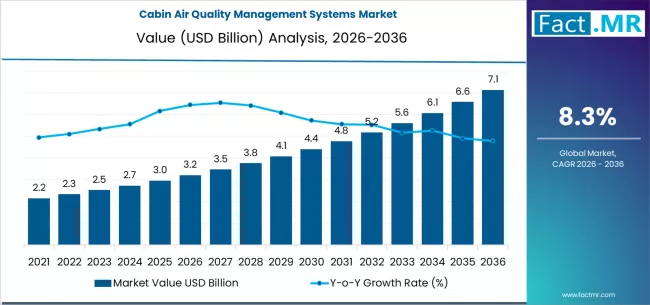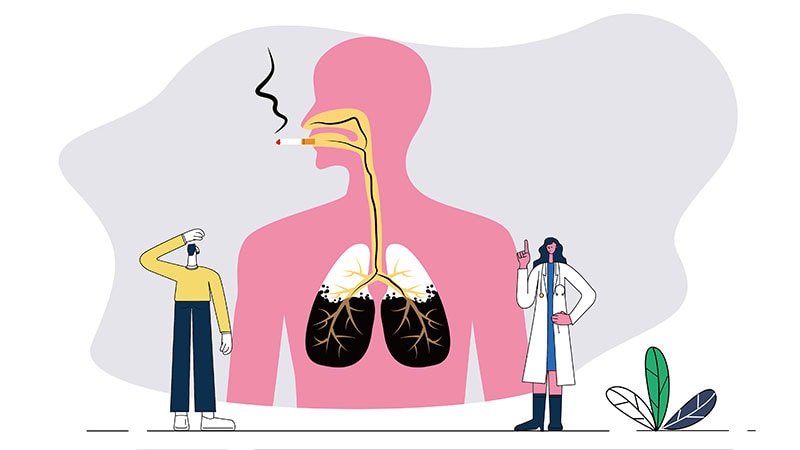Gearing Up for a Busy Fall as We Urge Congress to Support Hospitals and Protect Access to Care – American Hospital Association

Report on U.S. Congressional Legislative Priorities and Their Impact on Sustainable Development Goals
Impending Fiscal Deadlines and Implications for Health-Related SDGs
The United States Congress faces a critical deadline of September 30 to approve federal government funding, which includes appropriations for essential healthcare programs. A failure to pass the 12 appropriations bills could necessitate a continuing resolution to avert a government shutdown. Such fiscal instability poses a direct threat to the achievement of Sustainable Development Goal 3 (Good Health and Well-being) by jeopardizing the consistent delivery of healthcare services. Furthermore, ensuring stable and predictable governance through timely funding aligns with SDG 16 (Peace, Justice and Strong Institutions), which emphasizes effective and accountable institutions.
Critical Healthcare Policy Extensions and SDG Alignment
Several key healthcare policies are set for expiration, and their extension is paramount for continued progress on multiple SDGs. Congressional action is required to prevent disruptions to patient care and to uphold the principles of universal health access.
- Support for Vulnerable Communities: The Low-volume Adjustment and Medicare-Dependent Hospital programs are vital for healthcare access in underserved areas. Their continuation directly supports SDG 10 (Reduced Inequalities) by ensuring that rural and low-volume communities are not left behind.
- Innovative Care Models: Extending telehealth and hospital-at-home programs is crucial for modernizing healthcare delivery. These initiatives advance SDG 3 by expanding access to care and contribute to SDG 11 (Sustainable Cities and Communities) by building resilient and accessible community health infrastructure.
- Protecting Social Safety Nets: A moratorium on cuts to the Medicaid Disproportionate Share Hospital (DSH) program must be extended. The DSH program is a cornerstone of efforts to achieve SDG 1 (No Poverty) and SDG 10, as it provides financial stability to hospitals serving a high number of low-income patients.
- Affordable Insurance Access: The extension of enhanced premium tax credits for Health Insurance Marketplace plans is essential for making healthcare affordable, a key target of SDG 3.8 (Universal Health Coverage) and a critical component in the fight against poverty (SDG 1).
Core Advocacy Priorities for Sustainable Health Systems
To safeguard and advance national health objectives in line with the SDGs, advocacy efforts are focused on the following legislative priorities. Any proposed deficit reduction measures must not include funding cuts that would undermine these goals.
- Prevent Medicaid Disproportionate Share Hospital (DSH) Cuts: Upholds SDG 1 and SDG 10 by protecting funding for hospitals that serve a significant number of uninsured and low-income patients, thereby reducing health and economic inequality.
- Extend Telehealth and Hospital-at-Home Programs: Advances SDG 3 by leveraging technology to improve health service accessibility and efficiency, particularly for remote and mobility-impaired populations.
- Extend Low-volume Adjustment and Medicare-dependent Hospital Programs: Directly addresses SDG 10 by providing targeted support to hospitals in rural and underserved areas, ensuring equitable access to care.
- Protect the 340B Drug Pricing Program: Supports SDG 3 by enabling covered entities to stretch scarce federal resources to reach more eligible patients and provide more comprehensive services.
- Reject Site-neutral Payment Proposals: Prevents funding reductions that could compromise the ability of hospitals to provide 24/7 emergency care and complex services, which are fundamental to community well-being under SDG 3 and SDG 11.
- Extend Enhanced Premium Tax Credits: A critical measure for achieving SDG 3.8 (Universal Health Coverage) by ensuring health insurance remains affordable for millions of individuals and families.
- Enact the Save Healthcare Workers Act: This legislation directly contributes to SDG 8 (Decent Work and Economic Growth) by promoting a safe and secure working environment for healthcare professionals, which is essential for a sustainable health workforce.
Conclusion: Legislative Action as a Determinant of Sustainable Development
The legislative decisions made in the coming weeks will have a profound impact on the nation’s ability to provide equitable and accessible healthcare. It is imperative that Congress enacts policies that support hospital services and protect patient access. Such actions are not merely budgetary considerations; they are fundamental to the United States’ progress toward achieving key Sustainable Development Goals, most notably ensuring good health, reducing inequality, and building resilient communities for all citizens.
Analysis of Sustainable Development Goals in the Article
1. Which SDGs are addressed or connected to the issues highlighted in the article?
- SDG 3: Good Health and Well-being: The entire article is centered on ensuring hospitals and health systems have the necessary funding and policies in place to provide continuous and accessible health care services to communities. The core message, “Congress must support patient services provided by hospitals and protect access to care for communities,” directly aligns with the goal of ensuring healthy lives and promoting well-being for all.
- SDG 1: No Poverty: The article discusses programs aimed at reducing the financial burden of healthcare on vulnerable populations. Specifically, it calls for extending “enhanced premium tax credits that help individuals and families purchase insurance” and preventing cuts to the “Medicaid Disproportionate Share Hospital program.” These measures are crucial for financial risk protection, preventing individuals from falling into poverty due to high medical costs.
- SDG 10: Reduced Inequalities: By advocating for programs that support low-income and vulnerable groups, the article addresses the goal of reducing inequalities. The focus on the Medicaid Disproportionate Share Hospital (DSH) program, which supports hospitals serving a high number of low-income patients, and the push for premium tax credits aim to ensure that access to quality healthcare is not determined by a person’s economic status.
- SDG 16: Peace, Justice and Strong Institutions: The article is an appeal to a key national institution—the U.S. Congress—to perform its duties effectively and accountably. The call for lawmakers to “act by Sept. 30 to fund the federal government” and pass necessary legislation reflects the need for effective and stable governance to maintain essential public services like healthcare.
2. What specific targets under those SDGs can be identified based on the article’s content?
- Target 3.8: Achieve universal health coverage, including financial risk protection, access to quality essential health-care services and access to safe, effective, quality and affordable essential medicines and vaccines for all. The article’s advocacy for extending insurance subsidies (“enhanced premium tax credits”), funding hospital programs (“Low-volume Adjustment and Medicare-Dependent Hospital programs”), and ensuring services remain available (“protect access to care”) directly supports this target.
- Target 1.3: Implement nationally appropriate social protection systems and measures for all, including floors, and by 2030 achieve substantial coverage of the poor and the vulnerable. The article explicitly mentions several U.S. social protection systems, such as Medicaid, Medicare, and the premium tax credits on the Health Insurance Marketplace, and advocates for their protection and extension.
- Target 10.4: Adopt policies, especially fiscal, wage and social protection policies, and progressively achieve greater equality. The article is a direct call for Congress to adopt specific fiscal policies (funding appropriations bills) and social protection policies (extending Medicaid DSH, premium tax credits, etc.) to prevent widening inequalities in healthcare access.
- Target 16.6: Develop effective, accountable and transparent institutions at all levels. The article’s focus on the legislative process, urging Congress to avoid a “government shutdown” and pass funding bills through “regular order,” is a call for the institution to function effectively to meet the needs of the population it represents.
3. Are there any indicators mentioned or implied in the article that can be used to measure progress towards the identified targets?
-
For Target 3.8:
- Implied Indicator (related to 3.8.1 – Coverage of essential health services): The continuation and extension of “telehealth and hospital-at-home programs” serve as a direct measure of the expansion and modernization of health service coverage. The number of hospitals able to maintain 24/7 care without service reductions due to funding is another implied metric.
- Implied Indicator (related to 3.8.2 – Financial risk protection): The number of individuals and families who are able to purchase insurance due to the “enhanced premium tax credits” is a key indicator of progress in protecting the population from catastrophic health expenditures.
-
For Target 1.3:
- Implied Indicator (related to 1.3.1 – Population covered by social protection): The number of patients served by hospitals receiving “Medicaid Disproportionate Share Hospital” payments and the number of beneficiaries of the “Low-volume Adjustment and Medicare-dependent Hospital programs” can be used to measure the reach and coverage of these specific social protection systems.
-
For Target 16.6:
- Implied Indicator: The successful passage of the 12 federal appropriations bills by the September 30 deadline to avoid a government shutdown would be a clear indicator of institutional effectiveness in fulfilling its primary responsibilities.
4. Summary Table of SDGs, Targets, and Indicators
| SDGs | Targets | Indicators (Implied from the Article) |
|---|---|---|
| SDG 3: Good Health and Well-being | 3.8: Achieve universal health coverage, including financial risk protection and access to quality essential health-care services. |
|
| SDG 1: No Poverty | 1.3: Implement nationally appropriate social protection systems for all, including the poor and vulnerable. |
|
| SDG 10: Reduced Inequalities | 10.4: Adopt fiscal and social protection policies to achieve greater equality. |
|
| SDG 16: Peace, Justice and Strong Institutions | 16.6: Develop effective, accountable and transparent institutions. |
|
Source: aha.org

What is Your Reaction?
 Like
0
Like
0
 Dislike
0
Dislike
0
 Love
0
Love
0
 Funny
0
Funny
0
 Angry
0
Angry
0
 Sad
0
Sad
0
 Wow
0
Wow
0









































































